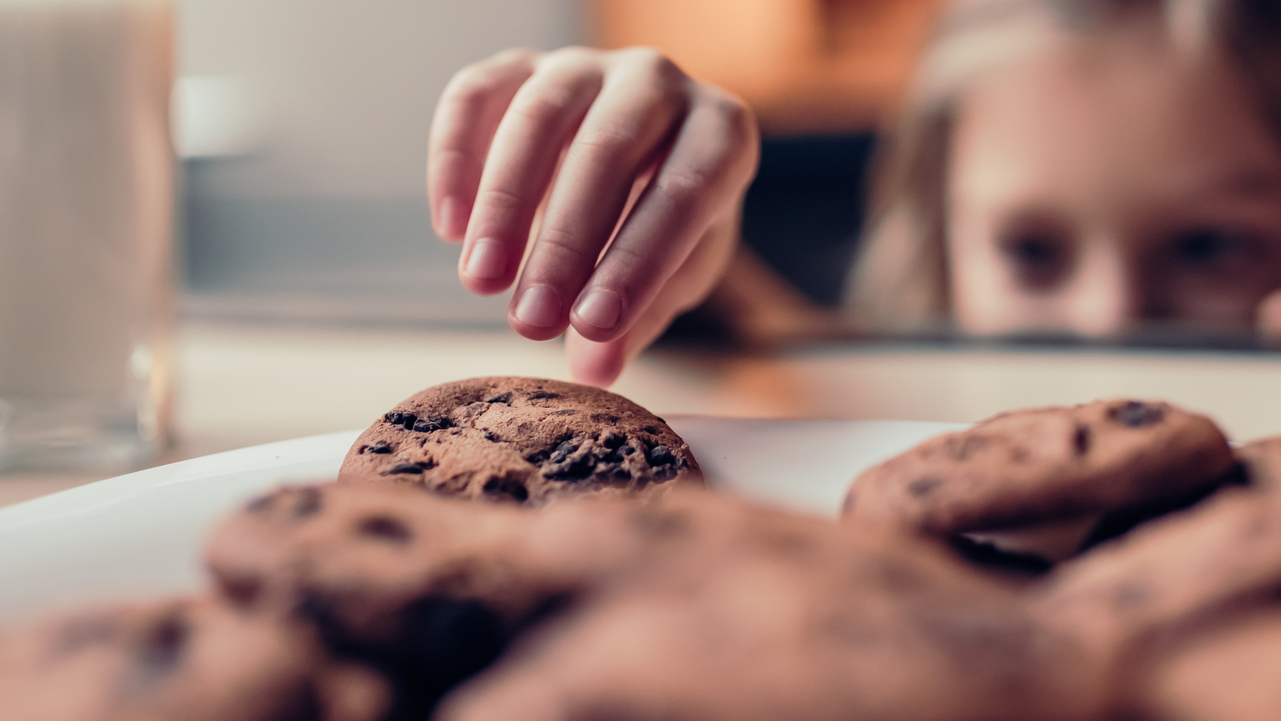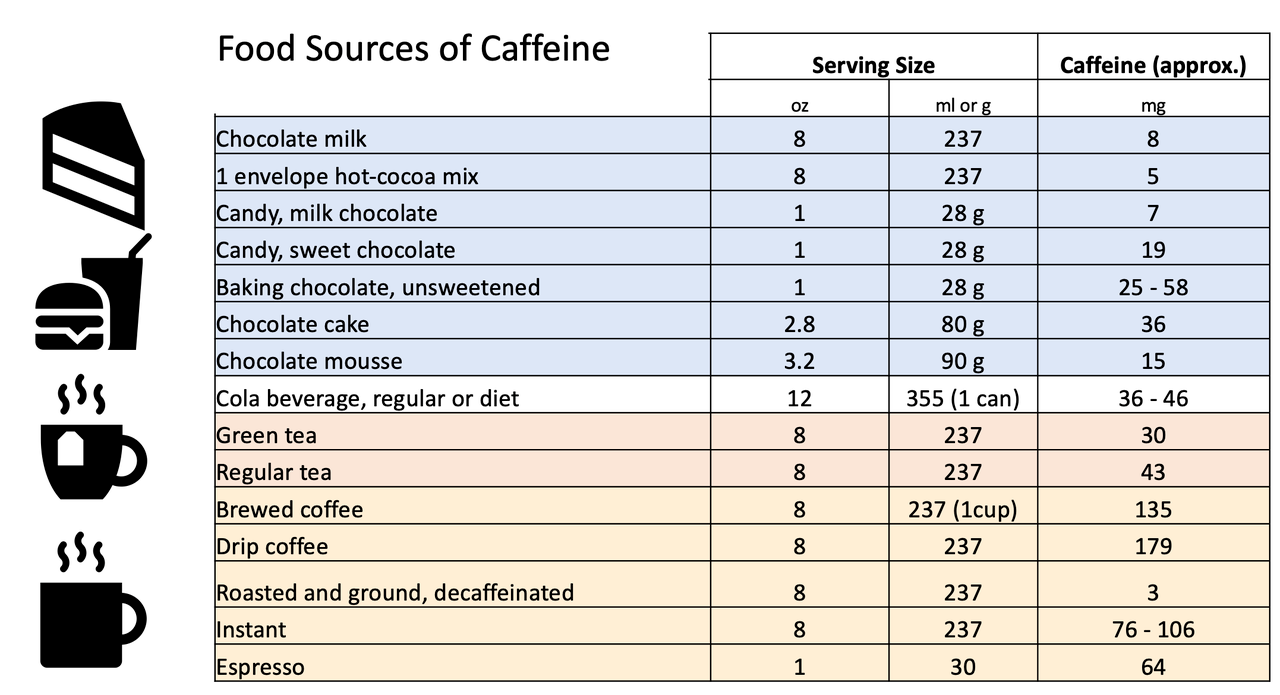Could Hidden Caffeine be Derailing Happy Holidays with Young Children?
- Written by: Lynne Lafave

Caffeine is a phytochemical (plant-based component) naturally produced in the leaves and seeds of many plants. It's also made artificially and may be added to certain foods. Though most often associated with coffee, it can also be found in many other food and drink products finding its way into young children’s daily intake. This might be especially true during the holidays when treats and desserts are part of the celebrations.
Caffeine and Kid's Health
Caffeine affects the central nervous system as a stimulant. The brains of a child tend to be a little bit more sensitive to caffeine's effects than the brains of adults. In both kids and adults, too much caffeine can cause1
- jitters and nervousness
- upset stomach
- headaches
- difficulty concentrating
- trouble sleeping
- faster heart rate
However, it appears that the biggest concerns from caffeine relate to negative effects on children’s sleep and emotional level.
- Sleep - Children require stable, consistent sleep patterns and more hours sleeping than adults. Disruptions to sleep compromise a child’s mental and physical development. The ingestion of caffeine is one of the leading factors interfering with these processes.2
- Emotional Health - Children’s emotional health seems to be one of the aspects affected by caffeine intake. In particular child anxiety and depression appear to be linked to increasing caffeine ingestion and it appears that children are more sensitive to the effects of caffeine, compared to adults, although the cause remains unclear.2
Hidden Caffeine
You might be thinking, “well, I don’t let children drink coffee or caffeinated tea, so I don’t need to be concerned about this.” However, caffeine is found in more foods and drinks than you might guess. It can be hidden in soda beverages, chocolate, coffee ice cream or frozen yogurt, cakes, and candy. Looking at the ingredient list, it might even be listed as guarana seed extract. And energy drinks can contain up to 180 mg in a single serving.3 Check out Table 1 below for some food sources that might be increasing caffeine in the young children’s diet in your life.4
It's wise to keep caffeine consumption to a minimum, especially in younger kids.
Tips and Strategies
Health Canada has some guidelines for children aged 4-6 years regarding caffeine. The maximum daily intake should be limited to 45 milligrams a day4 — about as much caffeine as found in a 355 mL can of cola. Suggestions include:
- eliminate soda and make water the choice of habit
- watch for hidden caffeine by checking the ingredient list on foods and beverages
- think about chocolate consumption and let moderation be your guide
- portion size should match body size - smaller children should have less to match their caffeine limits
"I work on these ideas at our child care centre but what about when kids aren’t with us at the centre - what can I do?"
Share a link to this blog with parents so they can consider what children are eating at home and what they can do to help minimize caffeine on their end. Parents and educators are partners in providing the best environments where children grow up. Teamwork makes the dream work!
As with everything, moderation is the key to keeping your kids' caffeine consumption under control and the holidays a pleasant time for all!
Table 1 - Food sources of caffeine4

References
-
Benton, J. M. (Ed.). (2017). Caffeine (for parents) - Nemours kidshealth. KidsHealth. Retrieved December 19, 2021, from https://kidshealth.org/en/parents/child-caffeine.html
-
Torres-Ugalde, Y. C., Romero-Palencia, A., Román-Gutiérrez, A. D., Ojeda-Ramírez, D., & Guzmán-Saldaña, R. M. (2020). Caffeine consumption in children: Innocuous or deleterious? A systematic review. International Journal of Environmental Research and Public Health, 17(7), 2489.
-
Government of Canada (2017) Transition of caffeinated energy drinks from natural health products to food using temporary market authorization letters. Canadian Food Inspection Agency. Retrieved December 19, 2021, from https://inspection.canada.ca/food-label-requirements/labelling/caffeinated-energy-drinks/eng/1377613077840/1377613161282
-
Government of Canada. (2020). Caffeine in Food. Retrieved from https://www.canada.ca/en/health-canada/services/food-nutrition/food-safety/food-additives/caffeine-foods/foods.html